
International Conference in Economics, Business, Humaniora and Applied Science
“Bridging the Gap in Sustainable Development at ICEBHAS II,”

INTERNATIONAL CONFERENCE - ICEBHAS II 6-9 October 2025 - OSAKA JAPAN
DESCRIPTION: Principles of Economics and Business Management: Theoretical and Applied Approaches Uplifting existing conditions to upper level: Micro, Macro, and Social—Development Economic scheme within International Context.
RESEARCH GAP ISSUES
The interaction between economics, business, social science, education, and foresight within interdisciplinary studies offers a rich needlepoint for exploring and enhancing sustainable development. At its core, this integration seeks to leverage insights from multiple disciplines to understand better and predict future trends, thereby enabling more informed decision-making today. This approach is particularly relevant in sustainable development, where the need to balance economic growth with environmental preservation and social equity is dominant.
Applications in Research, Complexity science is used in fields like:
Economics (market dynamics, financial crises)
Sociology (social networks, migration patterns)
Environmental science (climate change models)
Engineering (resilient infrastructure)
Public policy (urban planning, pandemic response)
Series of International Conferences [ICEBHAS II - 2025]
THEME: SUSTAINABLE DEVELOPMENT: Through Modern Digital Arrangements
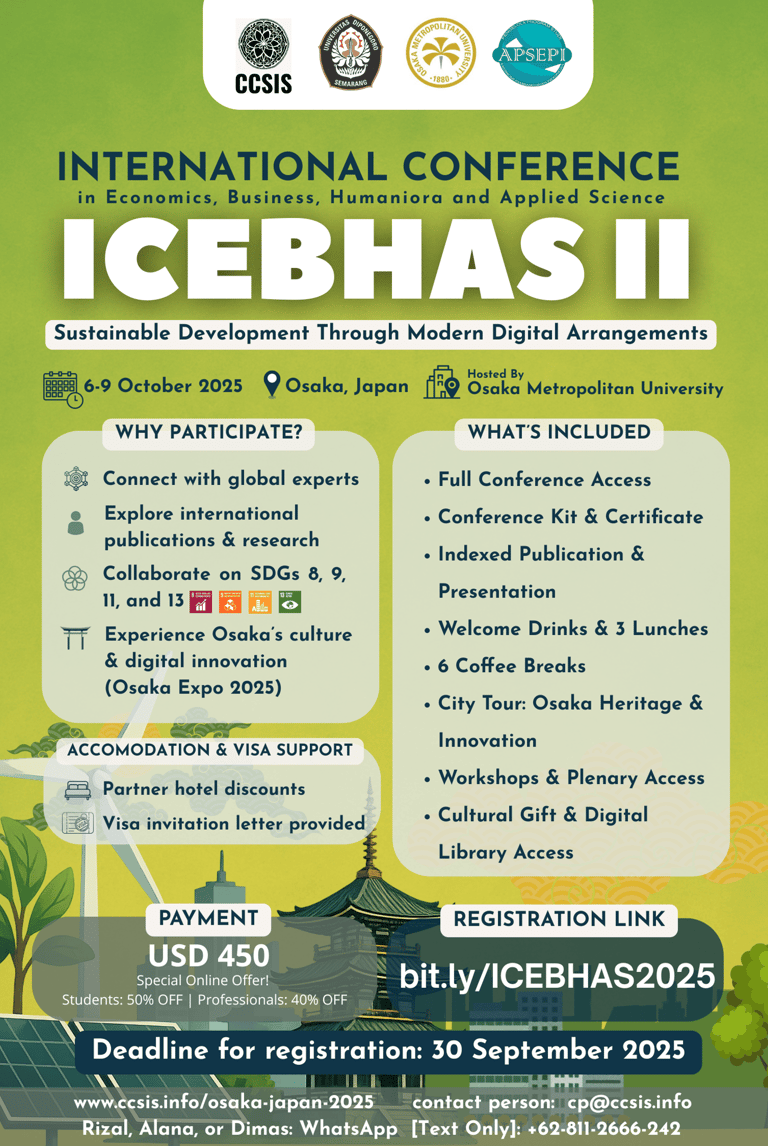

Pre Register here: http://bit.ly/ICEBHAS2025

ICEBHAS II 2025 IN OSAKA PROVIDES A MULTIDISCIPLINARY PLATFORM WITH PRESENTATIONS ORGANIZED ACROSS THEMATIC TRACKS.
1. Economics & Public Policy
Themes: Hajj fund utilization, zakat effectiveness, FDI impact on poverty, governance, income inequality, investment and fiscal independence, socio-economic conditions in Papua.
Case studies mainly from Indonesia and ASEAN.
Key issues: economic governance, welfare, and inclusive growth
2. Energy & Environment
Topics: spatial spillovers of refugees on the environment, green GDP, renewable energy policy and growth, green innovation, and urban village economic development.
Strong focus on sustainability, governance, and policy interventions
3. Management & Technology
Topics: village-owned enterprises (Brebes), service quality in Sharia banking, MEMS technology improvement, and ethical migration governance.
Combines management practices, governance, and technological innovation
4. Other / Interdisciplinary
Topics: South China Sea geopolitics, labor and informal work, wage analysis, Bitcoin mining and electricity consumption, rural housing, fintech policy, inflation-growth interactions.
Highly cross-cutting research, linking economics, technology, energy, and geopolitics
5. Trade & Development
Themes: financial inclusion, digital transformation, gender and development, international trade effects, structural transformation, SDGs impact, regional disparities.
Strong orientation toward inclusive and sustainable development pathways
6. Other / Interdisciplinary (In-Person Session)
Presentations from multiple scholars across diverse backgrounds.
Provides a networking-focused space for face-to-face academic exchange
ICEBHAS II 2025 is structured around five major academic tracks (Economics & Public Policy, Energy & Environment, Management & Technology, Other/Interdisciplinary, Trade & Development), with an additional in-person interdisciplinary session.

ICEBHAS II OSAKA, JAPAN 6–9 October 2025, Hosted by Osaka Metropolitan University, Japan.
Session Planning Day I and Day II
Welcome Speech by the President of Metropolitan University, Osaka, Japan
Dr. Takaaki Shigematsu will deliver a welcome speech on October 7 at 10:00 a.m. He is a Vice President for Industry-Academia-Government Collaborative Creation, Urban Think Tank Strategy, Industry-Academia Collaboration, and EXPO.
KEYNOTE SPEAKERS CCSIS–ICEBHAS II
OSAKA, JAPAN 2025
Prof. Toshiyuki Matsui, Vice President I, Osaka Metropolitan University, Japan
Prof. Morgane Chevé, Vice President I, Université du Havre, Normandy, France
Prof. Nicholas Morris, La Trobe University, Australia
Prof. Yuta Hirayama, Osaka Metropolitan University, Japan
Prof. Dr. ing. Jan Veuger, Saxion University, Netherlands
Prof. Ali Smida, Université Sorbonne Paris Nord & IDHEAP
Session Planning Day I and Day II, Session I – Economics & Public Policy, Chair: Professor Hirayama
Submission 25: Strengthening the Ummat Economy through the Sustainable Utilisation of Hajj Funds: Multiplicative Impact of Ras Input-Output and Interregional Input-Output: Case Studies in Indonesia
Submission 7: Nutritional Challenges in A Growing Economy: Socio-Economic Influences on Undernourishment in Indonesia
Submission 11: Effectiveness of Productive Zakat in Increasing Economic Independence
Submission 9: The Impact of Foreign Direct Investment on Poverty and Inequality in Indonesia
Submission 10: Good Governance: A Trigger for a Sustainable Economy
Submission 5: The Impact of Human Capital and Institutional Quality on Income Inequality: Evidence from ASEAN Countries
Submission 1: Investment and Fiscal Independence: An Analysis of Papua's Economic Pathways
Submission 2: Analysis of Family Socio-Economic Conditions on Family Welfare in Heram District, Jayapura City
Submission 26: Input-Output and Interregional Input-Output Analysis.
Session II – Energy & Environment, Chair: Professor Matsui
Submission 27: Spatial Spillover of International Refugees on Environmental Damage: How Does Good Governance and Openness Matter?
Submission 4: Factors Influencing Indonesia’s Green GDP
Submission 3: The Impact of Renewable Energy Policy Implementation on Economic Growth in Central Java
Submission 23: Green Innovation, Environmental Support, and Digitalisation to Navigate Urban Village Economic Development: Evidence from Jakarta
Session III – Management & Technology, Chair: Yamada Sensei
Submission 29: Village-Owned Enterprises in Brebes Regency: Governance Gaps, Market Competition, and Pathways to Sustainability
Submission 15: The Effect of Service Quality and Sharia Compliance on Sharia Bank Customer Loyalty with Satisfaction as a Mediation Variable for Muslim Students
Submission 6: Improving The Quality of The MEMS Probe Card – An 8D Report Approach
Submission 13: Transnational Collaboration for Ethical Migration and Labour Governance in the New Southbound Region
Session IV – Other / Interdisciplinary, Chair: Dr. Jaka Aminata
Submission 28: South China Sea Geopolitics and ASEAN Economies: A Computable General Equilibrium Assessment
Submission 30: Converging Divergences in Formal and Informal Work: Longitudinal Evidence from Indonesia
Submission 31: Analysis of Wage Characteristics in East Java Province
Submission 14: Analysis of the Impact of Bitcoin Mining Ecosystem Growth on Global Electricity Consumption 2018–2022
Submission 22: Exploring the Potential Housing Needs of the Rural Community: Strategies for Reducing Backlogs and Providing Decent Housing
Submission 21: Inflation and Growth Interactions: Empirical Evidence from the Threshold Regression Model
Submission 19: Implication of Fintech Peer-to-Peer Lending Interest Rate Cap Policies in Indonesia, Malaysia, and Hong Kong
Session V – Trade & Development, Chair: Professor Hirayama
Submission 24: The Pathway to Sustainable Development: Role of Financial Inclusion and Digital Transformation to Navigate the Inclusive Blue Growth
Submission 12: Are Women’s Participation in Parliament and the Labour Market Affecting the Gender Development Index at District Levels? The Case of Java Region, Indonesia
Submission 8: Double-Edged Sword Effect of International Trade on SME of Skincare Products in Indonesia
Submission 32: Structural Transformation as a Strategy for Accelerating Sustainable Development in East Kalimantan
Submission 18: The Impact of the SDGs on Reducing Global Poverty and Inequality: Challenges Towards Sustainable Development in Lamongan Regency, East Java Province
Submission 20: The Effect of Regional Disparities on Development, Regional Financial Performance, and Community Welfare in East Kalimantan Province
Session VI – Other / Networking
Submission 33: In-Person, in-depth Discussion
Submission 37: In-person, in-depth Discussion
Submission 35: In-Person, in-depth Discussion
Submission 36: In-Person, in-depth Discussion
Submission 37: In-person, in-depth Discussion
Submission 38: In-Person, in-depth Discussion
===================================
TIME SCHEDULE [DETAIL]
ICEBHAS II OSAKA, JAPAN 6–9 October 2025
Session Planning Day I and Day II
10:00 -10:15: Welcome Speech by the President of Metropolitan University, Osaka, Japan
Dr. Takaaki Shigematsu will deliver a welcome speech on October 7 at 10:00 a.m. He is a Vice President for Industry-Academia-Government Collaborative Creation, Urban Think Tank Strategy, Industry-Academia Collaboration, and EXPO.
Keynote Session: Each keynote = 20 minutes, start 10:35 AM – 12:00 PM
Afternoon Parallel Sessions: Presenters start 13:45 – 17:00.
Breaks: 25 minutes every 3 hours.
Division: Submissions (Session I–VI) will be split evenly across 2 days.
Each presenter/paper = ~15 minutes (standard for ICEBHAS).
ICEBHAS II Osaka 2025 – Conference Schedule
Day 1 -- 7 October 2025
Location: Osaka Metropolitan University, 〒556-0012 Osaka, Naniwa Ward, Shikitsuhigashi, 2-chōme−1−41 南海なんば第1ビル, Japan, Morning Session.
Master of the Ceremony: Mr Egi Destiartono
10:00-10:15 Welcome Speech by the President of Metropolitan University, Osaka, Japan.
10:15-10:30 - Photo Session.
10:35 –10:55 - Prof. Toshiyuki Matsui (Osaka Metropolitan University, Japan).
10:55 –11:15 - Prof. Yuta Hirayama (Osaka Metropolitan University, Japan).
11:15 – 11:35 - Prof. Nicholas Morris (La Trobe University, Australia).
11:35 –11:55 - Prof. Morgane Chevé (Université du Havre, France).
11:55 – 12:15 - Closing remarks (Dr Jaka Aminata, Universitas Diponegoro, UNDIP, Indonesia).
Lunch Break: 12:00 – 13:45
Afternoon Session I (Economics & Public Policy) - Chair: Professor Hirayama.
13:45 – 14:00 – Submission 25
14:00 – 14:15 – Submission 7
14:15 – 14:30 – Submission 11
14:30 – 14:45 – Submission 9
14:45 – 15:00 – Submission 10
Afternoon Session II (Energy & Environment) - Chair: Professor Matsui.
15:00 – 15:15 – Submission 5
15:15 – 15:30 – Submission 1
15:30 – 15:45 – Submission 2
☕ Coffee Break: 15:45 – 16:10
Continuing the afternoon session II (Energy & Environment) - Chair: Dr Jaka Aminata
16:10 – 16:25 – Submission 27
16:25 – 16:40 – Submission 4
16:40 – 16:55 – Submission 3
16:55 – 17:00 – Wrap-up
Day 2 –- 8 October 2025
Location: Osaka Metropolitan University, 〒556-0012 Osaka, Naniwa Ward, Shikitsuhigashi, 2-chōme−1−41 南海なんば第1ビル, Japan.
Master of the Ceremony: Ms Renata - Mr Egi Destiartono.
Morning Session
10:35 – 10:55 – Prof. Dr. ing. Jan Veuger (Saxion University, Netherlands) (Tentative)
10:55 – 11:15 – Prof. Ali Smida (Université Sorbonne Paris Nord & IDHEP, France).
11:15 – 11:35 – (Open Keynote / OMU-UNDIP, Professor Jerry Chi, Andrew University, USA).
11:35 – 11:55 – (Open Keynote / OMU-UNDIP, Tunghai University, Taiwan).
11:55 – 12:00 – Closing remarks (Morning), by Dr Jaka Aminata, UNDIP, Indonesia.
Lunch Break: 12:00 – 13:45
Afternoon Session III (Management & Technology) - Chair: Yamada Sensei.
13:45 – 14:00 – Submission 23
14:00 – 14:15 – Submission 29
14:15 – 14:30 – Submission 15
14:30 – 14:45 – Submission 6
14:45 – 15:00 – Submission 13
Afternoon Session IV (Other / Interdisciplinary + Trade & Development) - Chair: 1st Professor Hirayama - 2nd: Dr. Jaka Aminata.
15:00 – 15:15 – Submission 28
15:15 – 15:30 – Submission 30
15:30 – 15:45 – Submission 31
16:10 – 16:25 – Submission 14
16:25 – 16:40 – Submission 22
16:40 – 16:55 – Submission 21
16:55 – 17:00 – Submission 19 & Closing
☕ Coffee Break: 15:45 – 16:10
Other: Running the networking Program
All 6 Keynote speakers are slotted (4 on Day 1, 2 on Day 2, plus guest placeholders).
All submissions (Sessions I–V) are distributed across 2 days.
Breaks every ~3 hours are included.
Sessions end at 17:00 sharp.
Day III ----9 October 2025
A Forum is designed to promote a concept note on International Community Service: A Case Study of Indonesian Workers in connection with ICEBHAS II, Osaka, Japan.
Invited Keynote Speaker:
Professor Amzul Rifin, The Education Attaché of the Indonesian Embassy in Tokyo, Japan. (Indonesian Workers)
Mr Charles Autheman, Independent ILO Consultant, Geneva, Switzerland. (International Human Rights - International Perspective).
Professor Lichuan Liuhuang - National Chung Cheng University, Taiwan. (Taiwanese cases)
Date : 9th October 2025
Location: Osaka Metropolitan University, 〒556-0012 Osaka, Naniwa Ward, Shikitsuhigashi, 2-chōme−1−41 南海なんば第1ビル, Japan.
Time: 10:00 – 12:00 PM [Local, Tokyo Time]
Participating: Universitas Diponegoro (UNDIP), CCSIS, and Osaka-based universities.
Forum Group Discussion (FGD)
International Community Service: Case Study Indonesian Worker (Kenshusei)
Lessons Learned for a Better Life Based on Human Rights, Decent Work, and Labour Rights Mechanism
Connected to ICEBHAS II, Osaka, Japan
1. Objectives of FGD
Socialize the concept of International Community Service (ICS) as a practical intervention linking Indonesia–Japan labour governance.
Collect feedback from stakeholders (workers, employers, unions, academics, NGOs, and government representatives) to refine the concept note.
Build consensus and potential partnerships ahead of ICEBHAS II (Osaka, October 2025).
Identify pathways to scale up ICS as a sustainable model beyond the pilot.
2. Participants
Academia: Universitas Diponegoro (UNDIP), CCSIS, Osaka-based universities.
Government & Institutions: BP2MI, Indonesian Consulate Osaka, Ministry of Labour Japan.
Workers & Alumni: Indonesian Kenshusei/SSW workers in Kansai, returnee associations.
Civil Society: Labour NGOs, migrant support centres, unions.
Private Sector: SMEs, supervising organisations, recruitment agencies (ethical track).
International Partners: ILO, IOM, UNDP (observers/advisers).
3. Agenda (Maximum 3 Hours)
Opening Session (20 min)
Welcome remarks (UNDIP/CCSIS & ICEBHAS II Organizing Committee).
Framing keynote: “From Kenshusei to Decent Work: Bridging Human Rights and Labour Mechanisms.”
Session I – Context & Voices (30 min)
Short presentation of Concept Note (10 min).
Testimonies: 2–3 Indonesian workers/alumni (20 min).
Discussion: Challenges in recruitment, contracts, OSH, grievance channels (20 min).
Session II – Interactive Discussion (30 min)
Breakout Groups (30 min):
Group A: Fair recruitment & pre-departure training.
Group B: Workplace rights, OSH, and grievance pathways.
Group C: Employer engagement and CSR.
Plenary Report Back (30 min).
Session III – Pathways Forward (40 min)
Policy reactions: BP2MI, Consulate, Japanese Labour Office (15 min).
Academic reflections: linking ICS with ICEBHAS II research tracks (10 min).
Open floor: joint commitments, scaling opportunities (15 min).
Closing (10 min)
Summary of key points & next steps.
Announcement: side session at ICEBHAS II, Osaka.
4. Expected Outputs
Consolidated feedback on ICS concept and pilot design.
Stakeholder mapping for implementation in Kansai.
Commitment notes (individual or institutional) to support the initiative.
Draft outline for ICEBHAS II side session on labour and community service.
5. Logistics
Format: Hybrid (Osaka on-site + online).
Language: Bilingual (Indonesian–Japanese with English summaries).
Documentation: Proceedings report, photo, and short video for ICEBHAS II promotion.
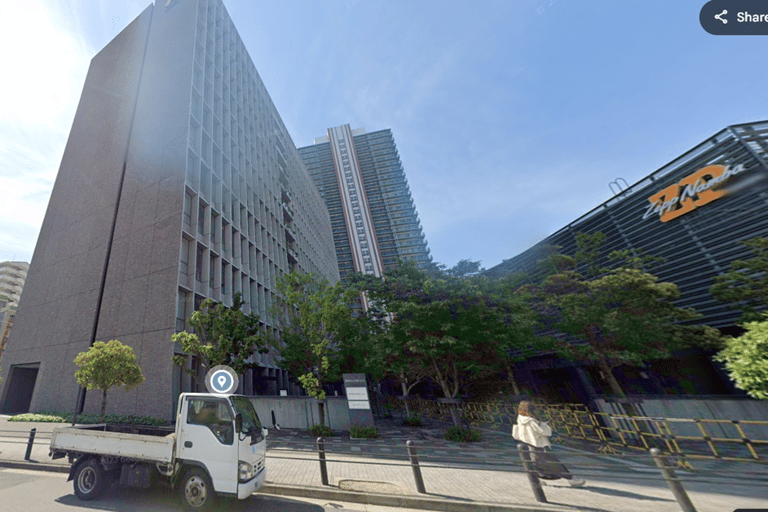

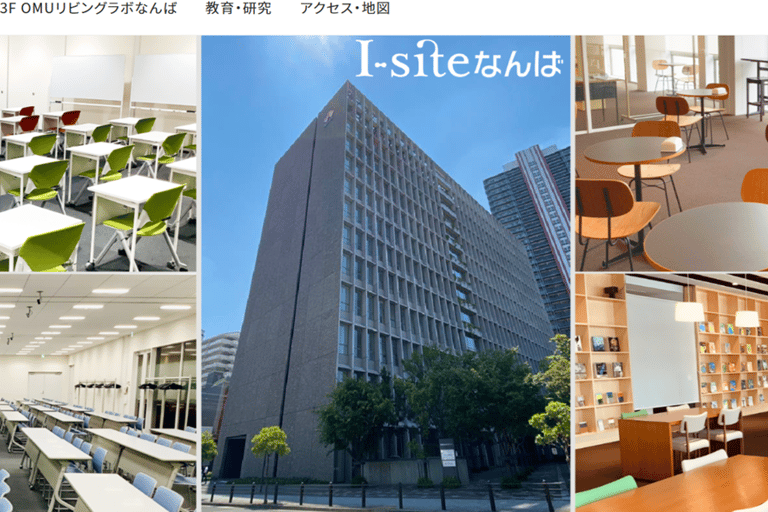

The Conference is located at :
Osaka Metropolitan University, 〒556-0012 Osaka, Naniwa Ward, Shikitsuhigashi, 2-chōme−1−41 南海なんば第1ビル, Japan


Series of International Conference [II]
Prof. Yuta Hirayama, Osaka Metropolitan University Japan.
Dr. Sylvain Baumann, University of Le Havre-Normandy, France.
Mr. Vasu Srivibha, Sasin University, Thailand.
Prof. Nick Morris, La Trobe University, Australia.
Prof. Jerry Chi, Andrew University, USA.
Prof. Samuel Grandval, University of Le Havre-Normandy, France.
Dr. Dan LeClair, Global Business School Network, GBSN, New York, USA.
Prof. Dorothée Baumann-Pauly, University of Genève, (UNIGE), Switzerland.
Prof. Ying-Chyi Chou, Overseas Science and Technology Division-NSTC, Belgium.
Prof. Wu Chih-Yun, Tunghai University, Taiwan.
Prof. Jan Veuger, Saxion University, Netherlands.
Prof. Hernando Gil Tovar, Universidad Surcolombiana, Neiva, Colombia.
Dr. Jaka Aminata, Universitas Diponegoro, Indonesia.
Steering Committee
Supporting System:
Association of APSEPI-Indonesia.
Osaka Metropolitan University Japan.
University of Le Havre, France.
Sasin University, Thailand.
Chulalongkorn University, Thailand.
Thammasat University, Thailand.
The PRME community the largest organized relationship between the United Nations and related higher education institutions.
The field of Research is focused on:
Education
Social Science & Humaniora
Communication
Energy Economics
Regional Economics
Public Economics
Industrial Economics
Monetary Economics
Natural Resources and Environmental Economics
Management Science
Finance
International Business
Applied Science
Islamic Economics
Applied International - national managerial Theory/Spectrum
Applied Decision-making Theory.
Sample topic covered:
Humaniora and Current Issues in Social Science [Communication Technology]
COVID-19 Pandemic Recovery: While vaccination efforts have been underway, the pandemic's economic effects persist. Issues include supply chain disruptions, labour shortages, shifting consumer behaviour, and monetary stimulus measures.
Energy Economics: Energy policy can cover many topics, including energy efficiency, renewable energy, fossil fuel development, electricity market, (type of market) transportation systems, and international energy trade.
Inflation: Many countries have experienced higher inflation rates due to supply chain disruptions, increased demand post-lockdowns, and monetary policies aimed at stimulating economies. Central banks are closely monitoring this situation and considering appropriate policy responses.
Climate Change and Sustainability: Climate change poses risks to businesses and economies, leading to discussions on sustainable practices, carbon pricing, renewable energy investments, and adaptation strategies.
Digital Transformation: The acceleration of digitalisation due to the pandemic continues, impacting various industries. Businesses are adapting to remote work, e-commerce growth, digital payments, and cybersecurity challenges.
Global Trade and Geopolitical Tensions: Trade tensions between major economies, such as the U.S. and China, and geopolitical conflicts affect global supply chains, trade policies, and investment decisions.
Income Inequality: The pandemic has exacerbated existing inequalities, leading to discussions on fair wages, wealth distribution, social safety nets, and policies to address disparities.
Technological Disruption: Emerging technologies like artificial intelligence, automation, blockchain, and 5G are transforming industries, raising questions about job displacement, regulation, and ethical considerations.
Remote Work and Hybrid Work Models: The pandemic normalised remote work, prompting businesses to reassess traditional office setups and adopt hybrid models. This shift has implications for productivity, employee well-being, and organisational culture.
Fluid Worker and Fluid Job Paradigm Based on Technological Change
Financial Market Volatility: Market volatility persists due to uncertainties surrounding the pandemic, inflation, monetary policy decisions, and geopolitical developments. Investors are closely monitoring these factors and adjusting their portfolios accordingly.
Supply Chain Resilience: The pandemic exposed vulnerabilities in global supply chains, leading to discussions on reshoring, diversification, just-in-case inventory strategies, and technology-enabled supply chain management.
Current issues in Islamic Economics include Islamic Public Economy, Halal Economics and Industry, and Sharia Finance and Banking.
Administration Procedure, Osaka Conference 6-8 October 2025
All attendees must register in advance to participate in conference activities. Each registration enables the publication or presentation of only one paper and the participation of only one person.
Complete Registration Includes Admission to Keynotes and plenaries, Technical Sessions, Coffee Breaks, and a gift.
Registration Note:
Online presentation for students: a 50% discount from US$450 and discount 40% discount from US$450 for professionals, researchers, etc.
Paper Length Limitation: The paper must be 12 pages long. If it exceeds 12 pages, additional pages will be permitted at the cost of $50 per additional page (a maximum of 20 pages is acceptable).
Two (2) Additional Paper: Each paid registration covers only one paper; you can pay an Additional Paper Fee (100 USD) for one more paper from the same first author who already has a paid registration.)
Cancellation Policy
All refund/cancellation requests must be emailed to cp@ccsis.info and cs@ccsis.info, Cc. to ccsiscs17@gmail.com and received by 30 August 2025. No refunds will be provided after this date.
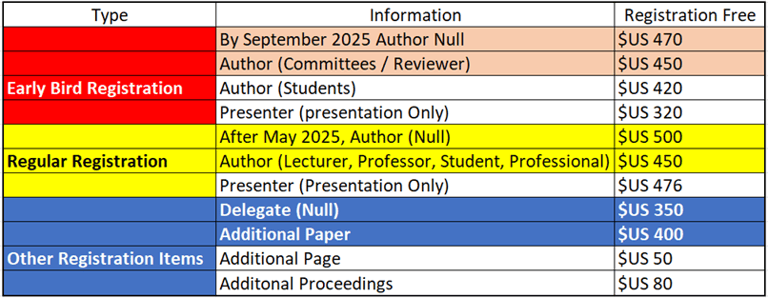

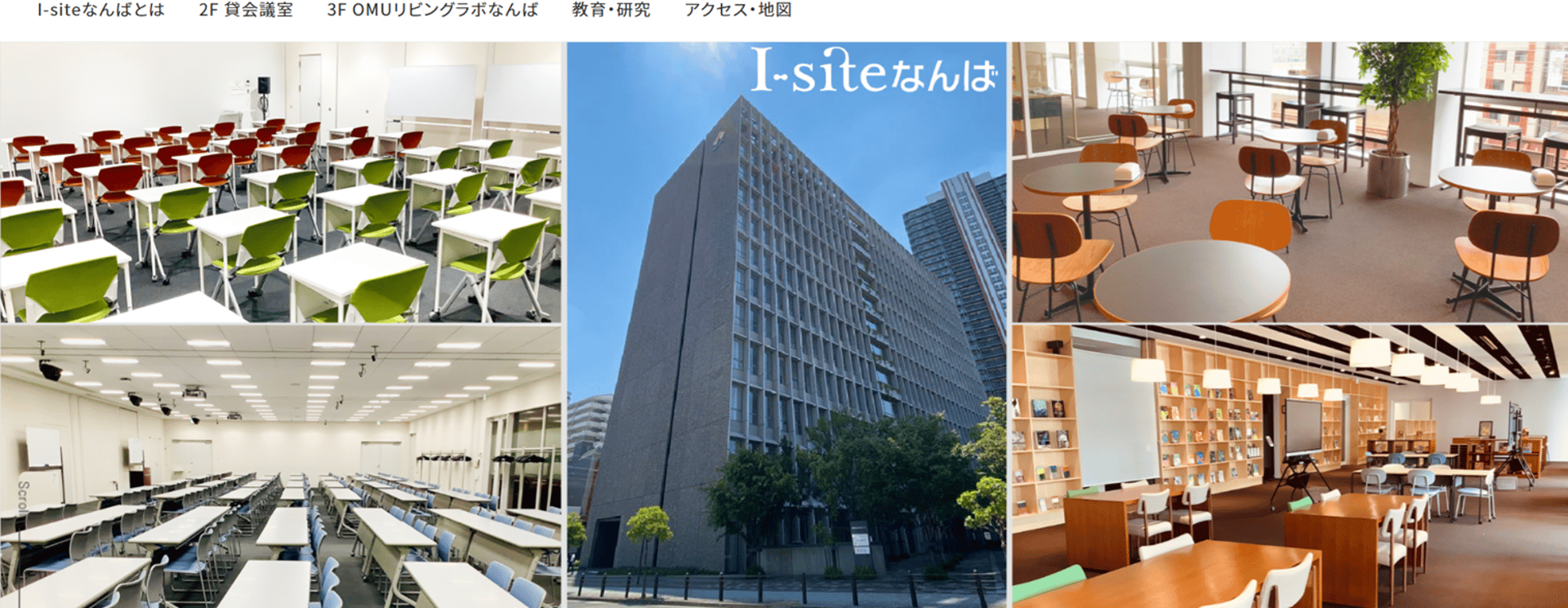



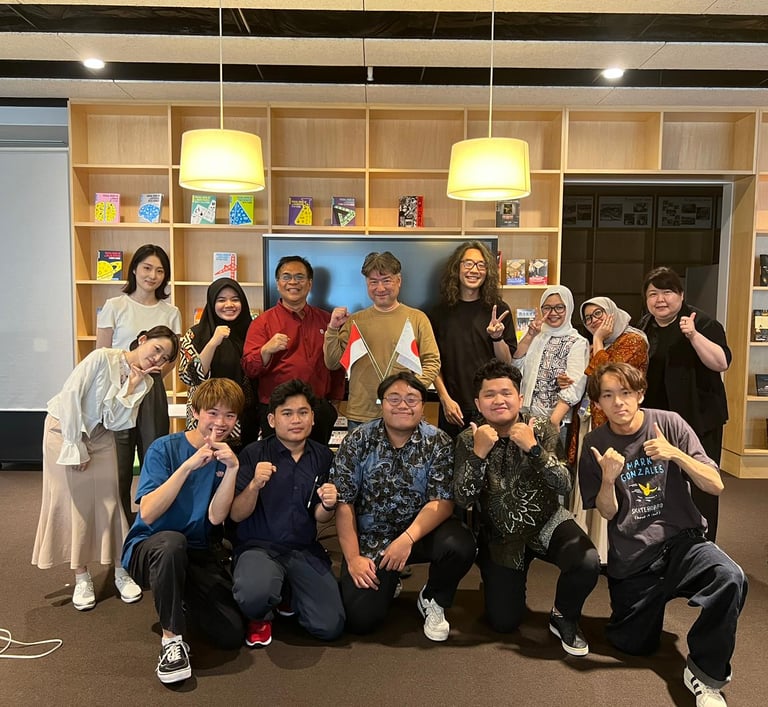

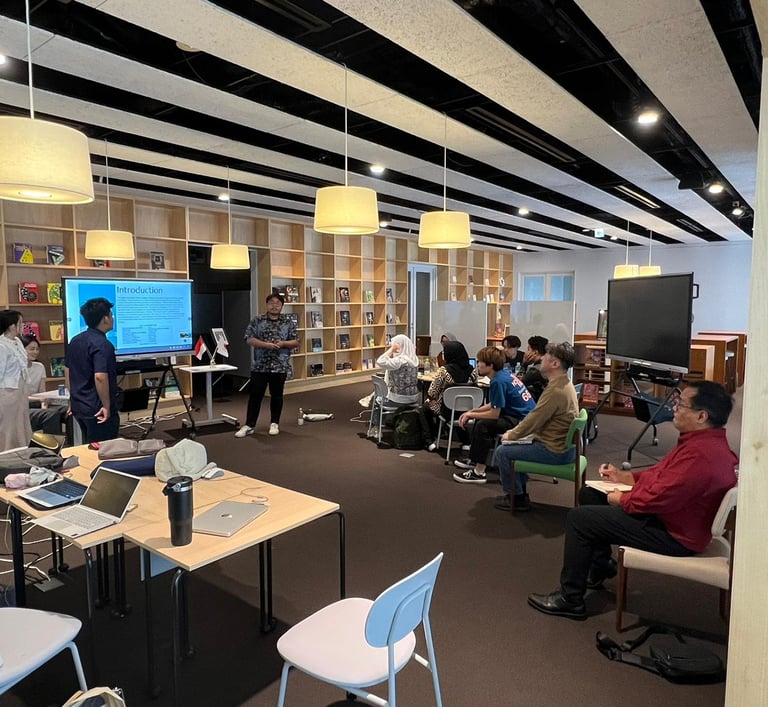

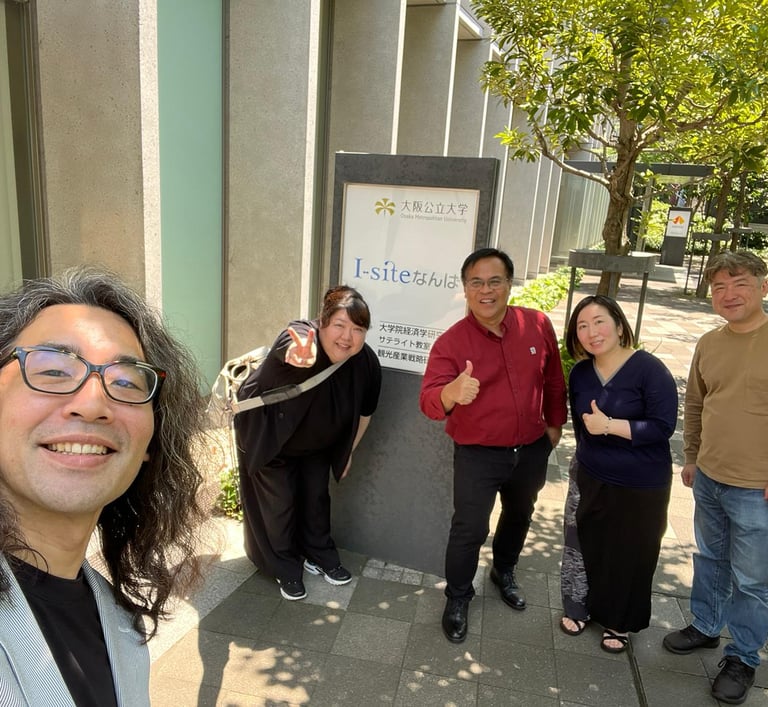

Shorct Course October 2024 - I- Site Namba, OMU- Osaka, Japan
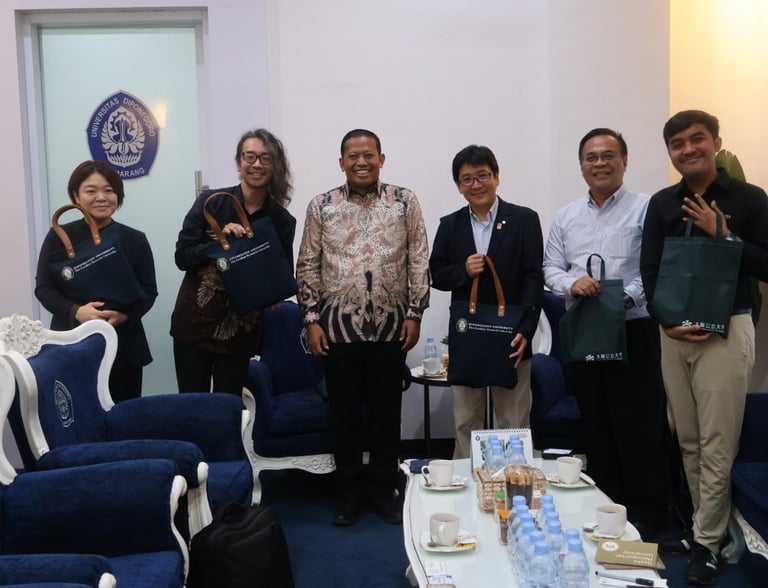

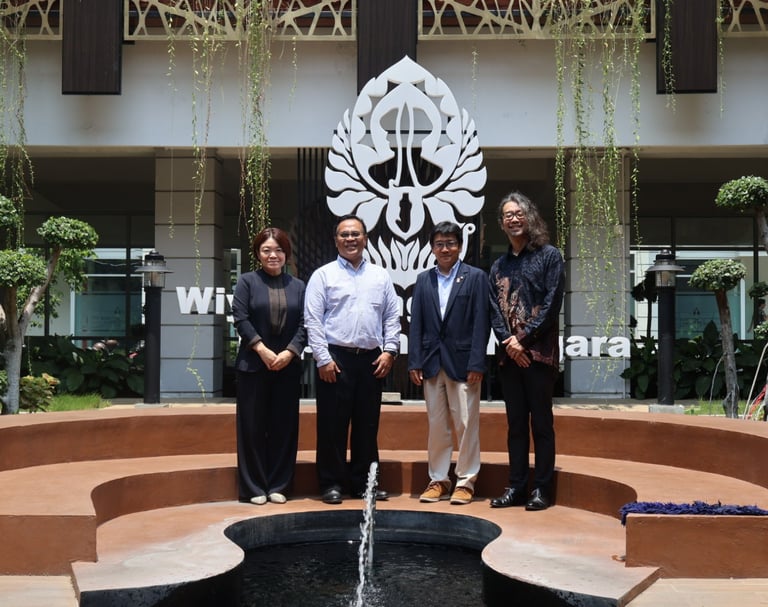

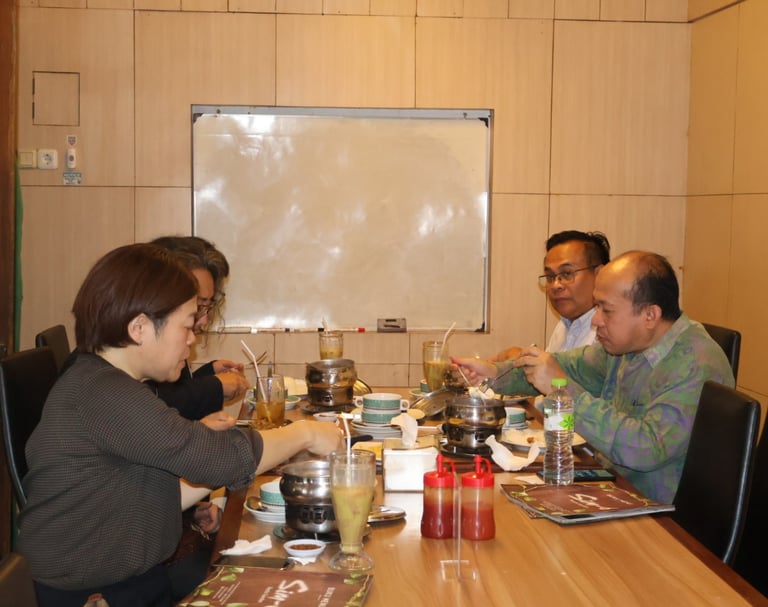

Preliminary Meeting November 2024 - UNDIP Tembalang
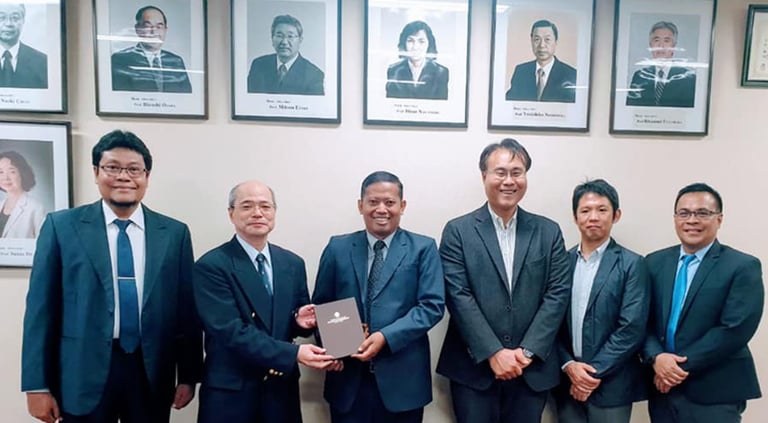

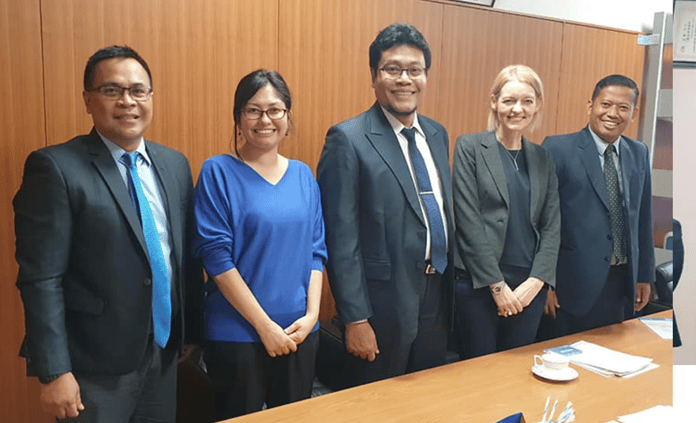

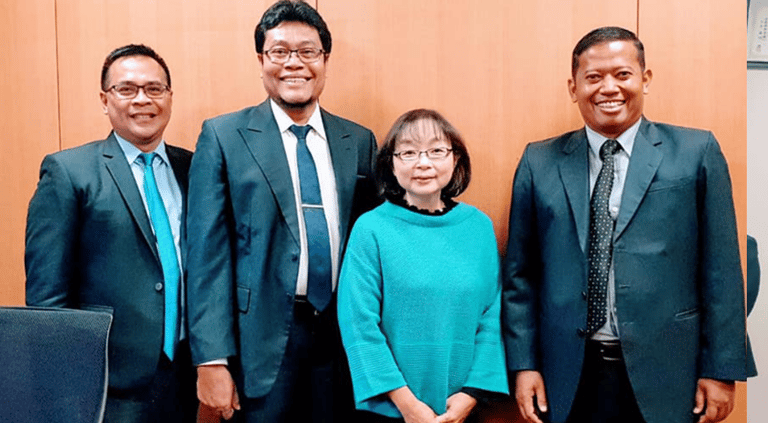

Preliminary Meeting Nagoya Japan
Returns & Refunds policy
You are entitled to cancel your register within 30 days without giving any reason for doing so.
The deadline for cancelling a register is 30 days from the date you received the confirmation or on which a third party you have appointed, who is not the charge person, takes possession of the product delivered.
To exercise your right to cancel, please let us know of your decision using a clear statement.
You can inform us of your decision by e-mailing cs@ccsis.info
We will reimburse you within 30 days of receiving the returned payment. We will use the same means of payment as you used for the order, and you will not incur any fees for such reimbursement.
Contact Us
If you have any questions about our Returns and Refunds Policy, please contact us by e-mail cs@ccsis.info
Get in touch
Socials
Subscribe to our newsletter
Copyright ©2024-2025 by Society of Complex Systems and Interdisciplinary Studies ║ International virtual Office: érables 94470, Boissy St Leger, France. Bank Address: Avenue Louise 54, Brussels, 1050, Belgium.



